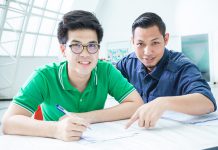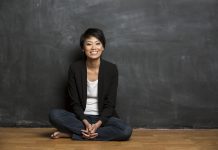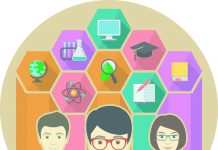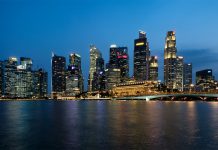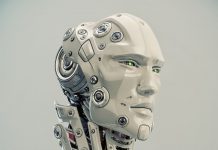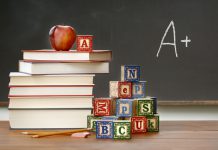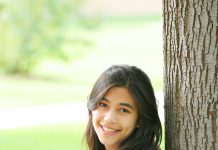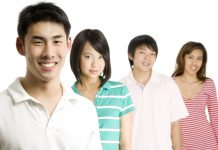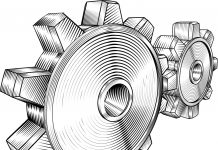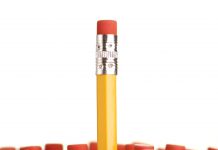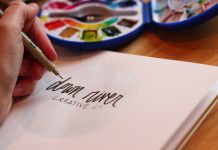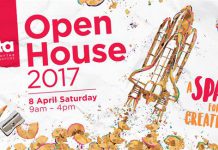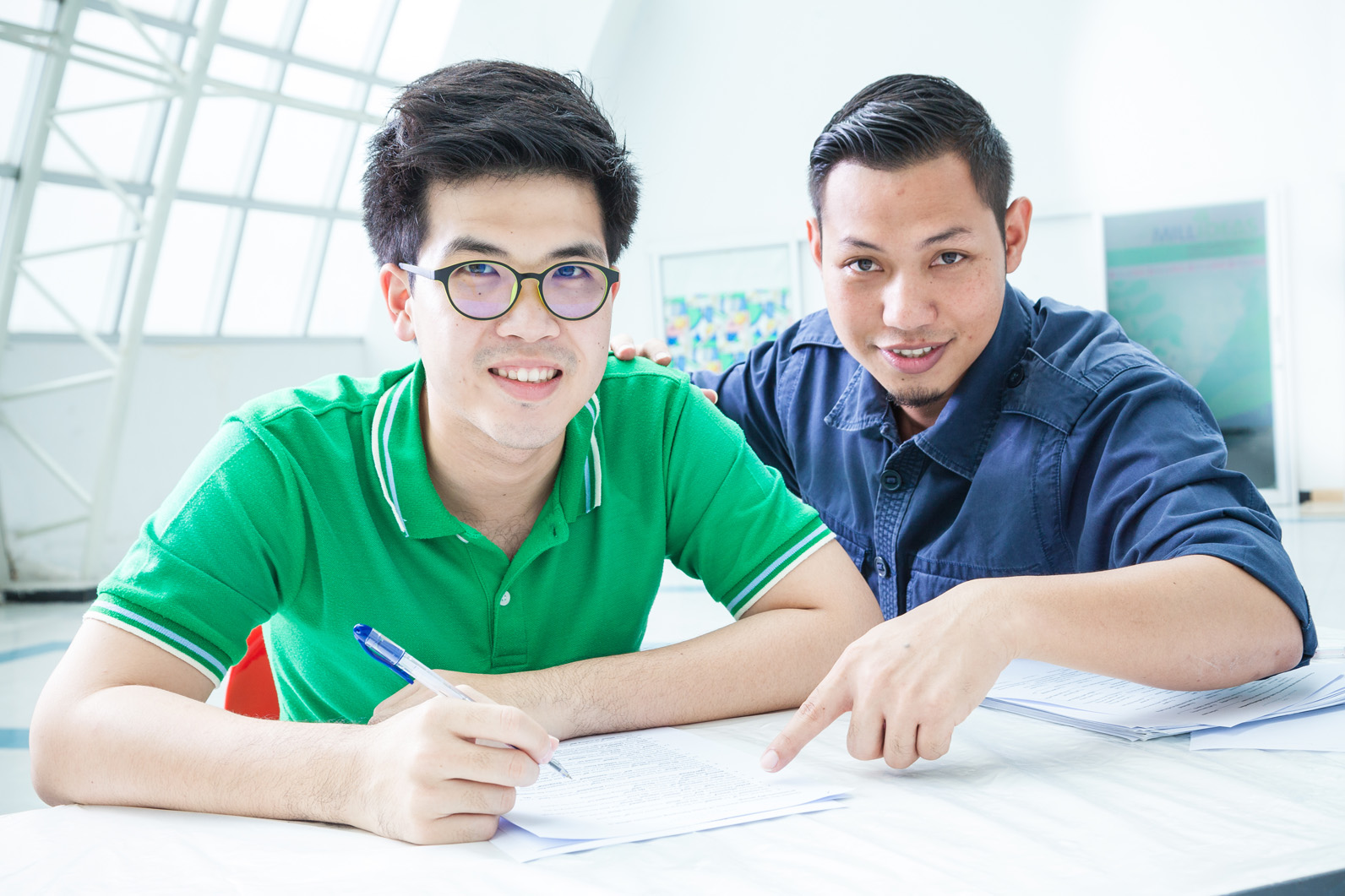Singapore students have what it takes to thrive in the 21st century workplace
Singapore’s teens have demonstrated competencies that enable them to navigate the challenges of the 21st century, according to the 2015 results of the Programme for International Student Assessment (PISA), a triennial international benchmarking study co-ordinated by the Organisation for Economic Cooperation and Development (OECD).
PISA 2015 shows that our students are not just competent in applying knowledge and skills, but also in analysing, reasoning and communicating as they solve novel problems. The results also highlight that our students enjoy learning Science and acquiring new scientific knowledge, as fostered by our teachers’ efforts in making learning authentic and relevant.
Ms Low Khah Gek, Deputy Director-General of Education (Schools), said: “It is encouraging that the results show our students have the necessary skills to deal with real-world situations and contexts. They are motivated learners who enjoy learning, which definitely puts them in good stead to tackle challenges ahead. For this, we have to thank supportive parents and dedicated teachers, who have brought out the best in our students – and this is something the students themselves have acknowledged!”
The results of the 2015 and past PISA cycles reflect the deliberate curricular shifts we have made over the years towards a greater emphasis on higher-order, critical thinking skills, and our pedagogical shifts in moving learning beyond content to mastery and application of skills to solve authentic problems in various contexts.
KEY FINDINGS OF PISA 2015
“We Think & Apply Well”
Overall, the PISA 2015 results affirm Singapore’s international standing as a high-performing education system, where students not only possess strong fundamentals in literacy and numeracy, but are also equipped with higher-order thinking skills1 . Andreas Schleicher, Director for Education and Skills and Special Advisor to the Secretary-General at OECD, said: “The modern world no longer rewards people just for what they know – Google knows everything – but for what they can do with what they know. It is therefore encouraging that Singapore’s students are not just leading the world in their scientific knowledge, but they excel particularly in their capacity to think like scientists in the way they creatively use and apply their knowledge.”
science problems that require higher-order thinking. They are particularly strong in evaluating and designing scientific enquiry, and they understand the importance of reasoned discourse and the use of evidence to support claims.
“We Enjoy The Experience”
More than 8 in 10 Singapore students agreed that they have fun when learning Science topics, and enjoy acquiring new knowledge in Science. Furthermore, our students view the learning of Science as useful for their future careers. More than 8 in 10 of them agreed that making an effort in Science is worth it, and the scientific knowledge and skills that they acquire will help them in future.
“We Have Great Teachers”
The PISA 2015 results also show that our education system provides opportunities2 for all to succeed and develops the potential of every child. This can be seen by the relatively small proportions of low performers who did not attain a baseline level of proficiency, and the high proportions of top performers who are capable of advanced thinking and reasoning.
Singapore’s proportion of low performers in each of the three domains (Science, Reading, Math Of the 72 participating education systems, Singapore students performed very well in Science, Reading and Mathematics. Science was the major domain in PISA 2015, and students’ competencies in different areas of science were measured. The results show that Singapore students are adept at solving science problems that require higher-order thinking. They are particularly strong in evaluating and designing scientific enquiry, and they understand the importance of reasoned discourse and the use of evidence to support claims.
“We Enjoy The Experience”
More than 8 in 10 Singapore students agreed that they have fun when learning Science topics, and enjoy acquiring new knowledge in Science. Furthermore, our students view the learning of Science as useful for their future careers. More than 8 in 10 of them agreed that making an effort in Science is worth it, and the scientific knowledge and skills that they acquire will help them in future.
“We Have Great Teachers”
The PISA 2015 results also show that our education system provides opportunities2 for all to succeed and develops the potential of every child. This can be seen by the relatively small proportions of low performers who did not attain a baseline level of proficiency, and the high proportions of top performers who are capable of advanced thinking and reasoning. Singapore’s proportion of low performers in each of the three domains (Science, Reading, Mathematics) stands at about 10% – among the lowest of all participating education systems. Meanwhile, Singapore’s proportion of top performers in each domain is the highest among all participating education systems (Science: 24%, Reading: 18%, Mathematics: 35%).
Our students in PISA 2015 reported that their teachers use a variety of strategies in teaching Science, thus contributing to our students’ strong interest and performance in the subject. These include the explicit teaching of concepts, explaining how an idea can be applied to different phenomena, and giving opportunities to students to explain their ideas. Their teachers, our students added, also provide them with feedback on their performance and customise lessons according to their needs. In fact, when compared to teachers in most education systems, teachers from Singapore use “adaptive” instruction more frequently, exercising flexibility and tailoring lessons based on their students’ needs and abilities.
More than 8 in 10 students also said that their teachers give extra help when they need it, and continue teaching until they understand during most or all Science lessons. Our students also felt that their teachers are interested in every student’s learning processes and outcomes.
“We Have Great Schools”
Our students’ performance in PISA 2015 is also supported by equitably well-resourced schools that provide our students with a stimulating and conducive learning environment. Singapore schools are very well-resourced in terms of the adequacy and quality of educational material and physical infrastructure, compared to schools in all participating education systems. This attests to our ongoing efforts to equip schools with modern ICT infrastructure and other necessary learning resources.
In addition, our principals and students reported favourable school and classroom climates which create a positive experience for teaching and learning.
BACKGROUND OF PISA
PISA is a triennial OECD 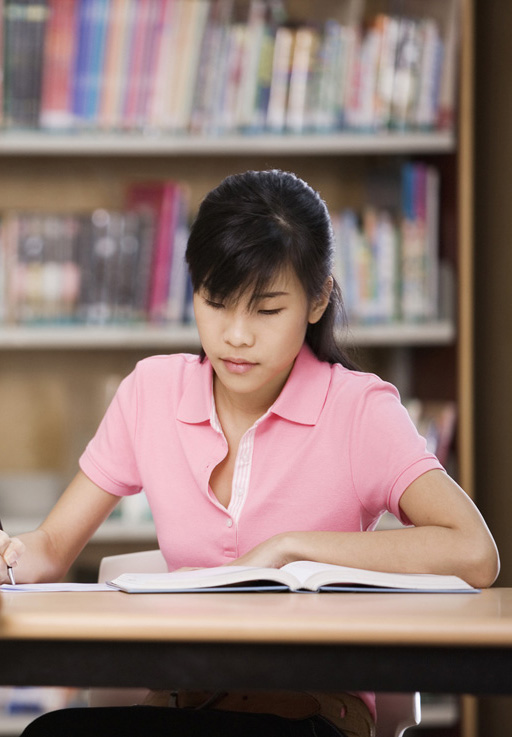 study that examines and compares how well education systems are helping their students acquire the knowledge and skills that are essential for full participation in modern societies. It assesses the capacity of 15-year-old students to apply knowledge and skills in Science, Reading and Mathematics, and to analyse, reason and communicate effectively as they solve problems in a variety of real-life situations. Each cycle provides information on all three domains but focuses on one major domain. For PISA 2015, 72 education systems participated in PISA 2015 in which Science was the major domain.
study that examines and compares how well education systems are helping their students acquire the knowledge and skills that are essential for full participation in modern societies. It assesses the capacity of 15-year-old students to apply knowledge and skills in Science, Reading and Mathematics, and to analyse, reason and communicate effectively as they solve problems in a variety of real-life situations. Each cycle provides information on all three domains but focuses on one major domain. For PISA 2015, 72 education systems participated in PISA 2015 in which Science was the major domain.
This is the third time that Singapore has participated in PISA. A total of 5,825 students, mainly from Secondary 3 and 4, from all 168 public secondary schools and 290 students from 9 private schools were randomly selected to take part in PISA 2015. They are representative of the population of 15-year-olds in Singapore.

